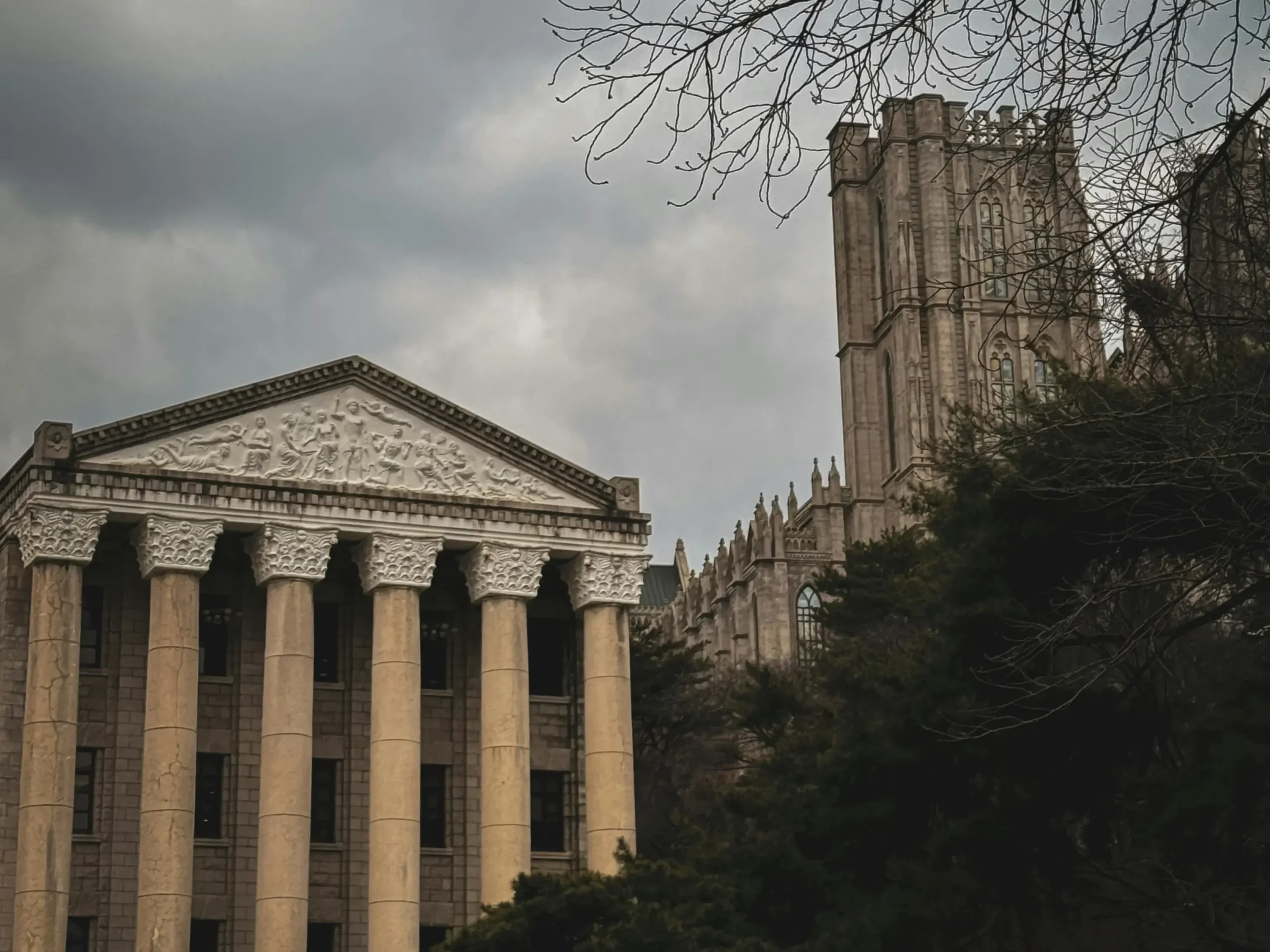Thinking about studying in South Korea? You’re not alone! Many international students are choosing South Korea for its top-ranked universities, affordable tuition, and vibrant student life. But one big question remains—how much does it really cost?
In this guide, we’ll break down everything you need to know about the cost of studying in South Korea, including tuition fees, living expenses, scholarships, and ways to study for free. If you’re worried about managing expenses, don’t stress—we’ve got plenty of tips to help you save money!
Table of contents
- Cost of Studying in South Korea for Indian Students
- University Fees in South Korea for International Students
- Top Programs for Students in South Korea
- Top Universities for Students in South Korea
- Scholarships and Free Study Options in South Korea
- Percentage Required to Study in South Korea for International Students
- Cost of Living in South Korea for Students
- Part-Time Work Opportunities for Students in South Korea
- FAQs on the Cost of Studying in South Korea
Cost of Studying in South Korea for Indian Students
The cost of studying in South Korea depends on the university, course, and lifestyle. On average, tuition fees range from INR 2.5 lahks to INR 8 lahks per year for undergraduate programs and INR 3 lakhs to INR 10 lahks per year for postgraduate programs. Here’s a breakdown of the costs:
| Expense | Cost in KRW | Cost in INR (approx.) |
| Tuition Fees (per year) | KRW 2,000,000 – KRW 15,000,000 | INR 1,25,000 – INR 9,30,000 |
| Accommodation (per month) | KRW 200,000 – KRW 600,000 | INR 12,500 – INR 37,500 |
| Food (per month) | KRW 300,000 – KRW 500,000 | INR 18,750 – INR 31,250 |
| Transport (per month) | KRW 50,000 – KRW 100,000 | INR 3,125 – INR 6,250 |
| Internet & Mobile (per month) | KRW 30,000 – KRW 50,000 | INR 1,875 – INR 3,125 |
| Miscellaneous (entertainment, shopping, etc.) | KRW 100,000 – KRW 300,000 | INR 6,250 – INR 18,750 |
*Total yearly cost (including tuition + living expenses) can range from KRW 6,000,000 to KRW 20,000,000 (INR 3.7 Lakh – INR 12.5 Lakh) depending on lifestyle*
University Fees in South Korea for International Students
Tuition fees in South Korea vary depending on the type of university (public or private) and the program you choose. Public universities are more affordable, while private universities tend to be expensive. Here’s a breakdown of the average tuition fees of universities in South Korea:
| Degree | Public University (KRW per year) | Private University (KRW per year) |
| Undergraduate | KRW 2,000,000 – KRW 5,000,000 | KRW 5,000,000 – KRW 15,000,000 |
| Postgraduate (Master’s, PhD) | KRW 2,500,000 – KRW 6,000,000 | KRW 6,000,000 – KRW 20,000,000 |
| Medical & Engineering Programs | KRW 4,000,000 – KRW 9,000,000 | KRW 8,000,000 – KRW 25,000,000 |
Tip: Most universities charge additional administrative and student service fees, so check the university website for exact amounts.
Also Read:
- Top Universities in the World [QS Rankings 2025]
- Best Student Cities to Study Abroad as per QS Rankings 2025
Top Programs for Students in South Korea
South Korea offers a variety of programs for international students, from engineering and business to arts and humanities. The cost of studying in South Korea depends on the university, program, and whether you choose a private or public institution. Here are some of the most popular programs among international students:
| Program | Average Tuition Fees (Per Year) | Best Universities Offering the Program |
| Engineering & Technology | KRW 4,000,000 – KRW 10,000,000 | KAIST, POSTECH, Seoul National University |
| Business & Management | KRW 3,500,000 – KRW 9,000,000 | Korea University, Yonsei University, Sogang University |
| Computer Science & IT | KRW 4,500,000 – KRW 10,000,000 | KAIST, Sungkyunkwan University, Hanyang University |
| Medicine & Health Sciences | KRW 7,000,000 – KRW 15,000,000 | Seoul National University, Yonsei University, Korea University |
| Arts & Design | KRW 3,000,000 – KRW 7,000,000 | Korea National University of Arts, Hongik University, Ewha Womans University |
Tip: Public universities are generally cheaper than private ones. Scholarships can also help reduce the cost of studying in South Korea.
Top Universities for Students in South Korea

Studying in South Korea offers a blend of quality education and cultural richness. For students from South Asia, understanding the cost of studying in South Korea is crucial. Below is a table highlighting the top 10 universities in South Korea, their QS World University Rankings for 2025, locations, top programs offered, and average annual tuition fees for international students.
| University | QS World Ranking 2025 | Location | Top Programs | Avg. Tuition Fee (KRW /year) |
| Seoul National University (SNU) | 31 | Seoul | Engineering, Life Sciences, Computer Science | KRW 6,000,000 – KRW 7,000,000 |
| Korea Advanced Institute of Science & Technology (KAIST) | 53 | Daejeon | Science, Technology, Engineering | KRW 7,000,000 – KRW 8,000,000 |
| Yonsei University | 56 | Seoul | Business, Medicine, International Studies | KRW 8,000,000 – KRW 9,000,000 |
| Korea University | 67 | Seoul | Law, Business, Humanities | KRW 8,500,000 – KRW 9,500,000 |
| Pohang University of Science and Technology (POSTECH) | 98 | Pohang | Materials Science, Mechanical Engineering | KRW 9,000,000 – KRW 10,000,000 |
| Sungkyunkwan University (SKKU) | 123 | Seoul | Business, Engineering, Natural Sciences | KRW 7,500,000 – KRW 8,500,000 |
| Hanyang University | 162 | Seoul | Engineering, Business, Medicine | KRW 8,000,000 – KRW 9,000,000 |
| Ulsan National Institute of Science and Technology (UNIST) | 280 | Ulsan | Science, Engineering, Business | KRW 6,500,000 – KRW 7,500,000 |
| Daegu Gyeongbuk Institute of Science and Technology (DGIST) | 326 | Daegu | Robotics, Energy Science, Brain Science | KRW 7,000,000 – KRW 8,000,000 |
| Kyung Hee University | 328 | Seoul | Hospitality, Medicine, International Relations | KRW 7,500,000 – KRW 8,500,000 |
Scholarships and Free Study Options in South Korea
Higher education can be expensive, but studying in South Korea doesn’t have to break the bank. If you’re worried about tuition fees, scholarships are a great way to reduce costs. South Korea offers many fully-funded and partial scholarships for international students, covering tuition, living expenses, and even airfare.
For Indian students looking to study in South Korea for free after 12th, fully-funded scholarships are the best option. Many universities and government programs provide financial aid, making South Korea an affordable destination for higher education. Here are five top scholarships that can help you study in South Korea with minimal costs:
| Scholarship Name | Eligibility | Benefits | Application Period |
| Korean Government Scholarship Program (GKS) | Undergraduate and postgraduate international students | Full tuition, monthly stipend, airfare, settlement allowance | Feb – April (Undergraduate), Sept-Oct (Graduate) |
| Global Korea Scholarship (GKS-U & GKS-G) | Bachelor’s, Master’s, PhD students | Tuition fees, living expenses, airfare, medical insurance | March-May |
| POSCO Asia Fellowship | Postgraduate students from Asian countries | Full tuition, living expenses, research funds | March – April |
| Samsung Global Hope Scholarship | Students from developing countries (including India) | Tuition fees, monthly allowance | Varies by university |
| Seoul National University (SNU) Scholarship for International Students | Undergraduate and postgraduate students at SNU | Full tuition, living stipend, health insurance | March-May |
Percentage Required to Study in South Korea for International Students
If you’re planning to study in South Korea, your academic percentage plays a key role in admission. Admission requirements depend on the university and program. Some top universities may require higher percentages and entrance exams. Always check the specific requirements before applying! Here’s a general guideline for Indian students:
| Degree Level | Minimum Percentage Required |
| Undergraduate (Bachelor’s) | 60% – 75% (varies by university) |
| Postgraduate (Master’s, PhD) | 65% – 80% |
| Engineering & Medical Programs | 70% – 85% |
Also Read:
- Cheapest Online University in the World
- Korean Restaurants in Manchester: 10 Places for Korean Food Lovers
Cost of Living in South Korea for Students

South Korea is a popular destination for international students, offering top universities and a vibrant culture. However, the cost of studying in South Korea can vary depending on tuition, accommodation, food, and daily expenses.
While it is more affordable than in Western countries, students should plan their budget wisely. Understanding these costs will help you manage your finances and enjoy your student life in South Korea. Here’s a breakdown of typical costs:
| Expense | Average Cost (KRW per month) |
| Accommodation (Dormitory/Apartment) | KRW 200,000 – KRW 600,000 |
| Food & Groceries | KRW 300,000 – KRW 500,000 |
| Transport (Subway, Bus, Taxi) | KRW 50,000 – KRW 100,000 |
| Internet & Mobile | KRW 30,000 – KRW 50,000 |
| Entertainment & Shopping | KRW 100,000 – KRW 300,000 |
Part-Time Work Opportunities for Students in South Korea
Studying in South Korea can be expensive, but working part-time can help manage expenses. International students can work within the limits of their visa to cover daily costs like food, transport, and entertainment. Many students find jobs in cafés, restaurants, tutoring, and retail stores to earn extra income.
Before taking up a job, it’s important to understand the rules, eligibility, and types of opportunities available. Here are five key things you should know about working part-time as a student in South Korea.
- Work Hour Limits – International students can work up to 20 hours per week during semesters and full-time during vacations. Language students may have stricter limits.
- Types of Jobs Available – Common part-time jobs for students include working at cafés, restaurants, convenience stores, and shopping malls. English-speaking students can also earn well through tutoring.
- Average Pay – The minimum wage in South Korea is around KRW 9,860 per hour (as of 2024). Depending on the job, students can earn between KRW 9,000 and KRW 12,000 per hour. Tutoring jobs typically offer higher pay.
- Work Permit Requirements – Students on a D-2 (degree) or D-4 (language) visa need permission from their university and the immigration office before starting a job. Some job sectors, like factory work, are restricted to student visa holders.
- Finding Jobs – Universities often have job boards where students can find part-time work. Websites like Albamon, JobKorea, and Craigslist Seoul also list job openings for international students. Networking with classmates and professors can also help in job searching.
So, is studying in South Korea expensive? It depends! Tuition fees are affordable compared to Western countries, and with scholarships, part-time jobs, and smart budgeting, you can easily manage your expenses. Planning your finances early can help you find the best scholarships and budget-friendly options. South Korea is an amazing place to study, and with the right planning, you can make your dream come true without breaking the bank!
Hope you liked reading our blog about the Cost of Studying in South Korea. For a stress-free stay during your study abroad adventure, choose Fly Homes. Call 1800572118 to reserve your ideal accommodation abroad with ease.
FAQs on the Cost of Studying in South Korea
The cost of studying in South Korea depends on the university and program. On average, tuition fees range from KRW 2.5 million to 6.5 million per semester (INR 1.5 lakh – INR 4 lakh). Public universities are cheaper than private ones. Living expenses add around KRW 700,000 – 1.5 million per month (INR 40,000 – INR 90,000).
It depends on your budget and lifestyle. South Korea is cheaper than the US or UK but costlier than some Asian countries. Public universities are affordable, and scholarships help reduce costs. Living expenses vary by city—Seoul is more expensive than smaller cities like Daejeon or Busan.
For Indian students, the cost of studying in South Korea varies. Tuition fees range from INR 1.5 – 7 lakh per semester. Living expenses are around INR 40,000 – 90,000 per month. Scholarships can help reduce costs. Public universities like SNU and KAIST are more affordable than private ones like Yonsei or Korea University.
Some of the affordable universities in South Korea are:
Seoul National University (SNU) – KRW 2.5 million per semester
KAIST – KRW 3 million per semester
Pusan National University – KRW 2 million per semester
Chungnam National University – KRW 2.2 million per semester
On average, an international student needs KRW 10 – 20 million (INR 6 – 12 lakh) per year, covering tuition fees and living costs. Studying in Seoul is more expensive than in other cities. Scholarships can reduce costs significantly.
Yes, if you get a fully funded scholarship like the KGSP (Korean Government Scholarship Program). Some universities also offer full tuition waivers for top-performing students. However, you still need money for living expenses.
Yes! Since March 2021, all international students must enrol in National Health Insurance (NHI). It costs KRW 60,000 – 120,000 per month (INR 3,500 – 7,000). This covers medical check-ups, doctor visits, and hospital expenses.
Smaller cities are more affordable than Seoul. Some cheaper cities for students are:
Daejeon – Home to KAIST, lower rent and living costs
Gwangju – Affordable tuition and cheaper accommodation
Daegu – Low living costs and good student life
Busan – Cheaper than Seoul but still a big city
Yes, many universities allow instalment payments. Some require a down payment before the semester starts, while the rest is paid in two or three parts. Check your university’s payment policies for exact details.
Yes! Students get discounts on transport, museum tickets, and some restaurants. Some banks also offer student-friendly savings accounts with lower service fees. University cafeterias provide affordable meals compared to eating out.
Follow Us on Social Media




























